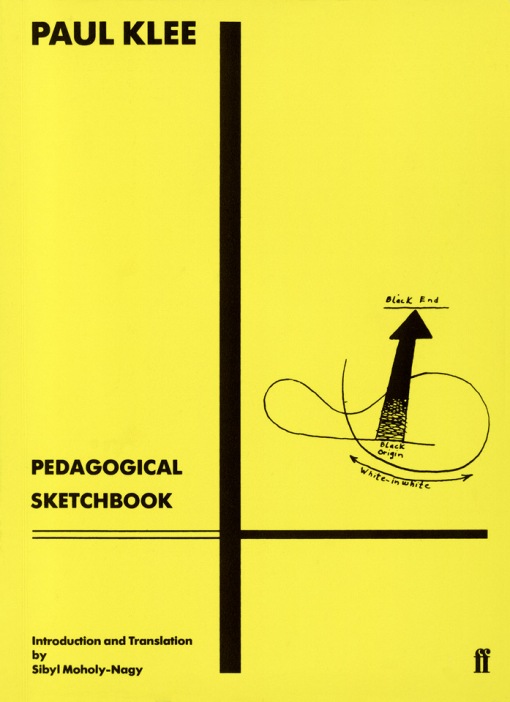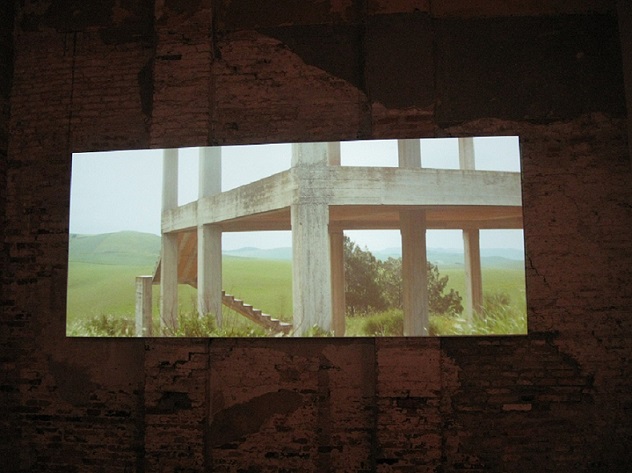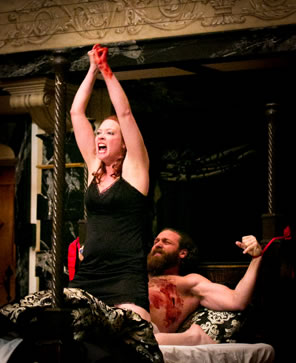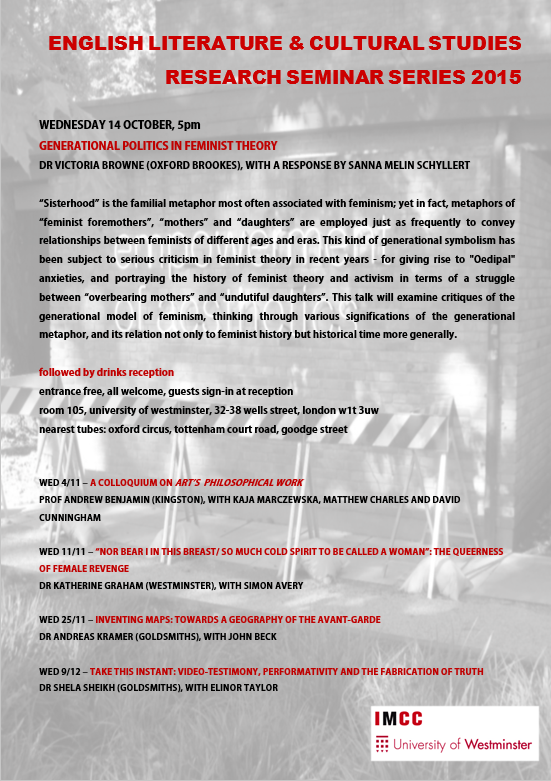Posts by Matthew Charles
Walter Benjamin’s The Storyteller: Fiction & Form

Matt Charles will be in conversation with Howard Caygill (Kingston), Sara Salih (Toronto) and the editors and translators of The Storyteller, Sam Dolbear, Esther Leslie and Sebastian Truskolaski, for a special event to launch Walter Benjamin’s fiction, collected in English translation for the first time. The Storyteller (Verso, 2016) gathers the fiction of the legendary critic and philosopher, best known for his groundbreaking studies of culture and literature, including Illuminations, One-Way Street and The Arcades Project. His stories revel in the erotic tensions of city life, cross the threshold between rational and hallucinatory realms, celebrate the importance of games, and delve into the peculiar relationship between gambling and fortune-telling, and explore the themes that defined Benjamin. The novellas, fables, histories, aphorisms, parables and riddles in this collection are brought to life by the playful imagery of the modernist artist and Bauhaus figure Paul Klee.
Walter Benjamin’s The Storyteller: Fiction & Form
18:30 – 20:00, Thu 22 September 2016,
The Keynes Library, Birkbeck School of Arts, 43-46 Gordon Square, London
https://www.eventbrite.co.uk/e/walter-benjamins-the-storyteller-fiction-form-tickets-26919415697
UPDATE: you can now hear a recording of the event by the Backdoor Broadcasting Company.
You can also grab a free copy of Matt’s recent article in Pedagogy, Culture and Society discussing Walter Benjamin’s lesser known writings on education, some of which are translated into English for the first time in The Storyteller: http://www.tandfonline.com/eprint/w4P7FNn3Pr22ScFQktkh/full.
This follows on from the IMCC’s recent conferences on Avant-Garde Pedagogies (2016) and Walter Benjamin, Pedagogy and the Politics of Youth (2013).
Caygill on Kafka’s Genealogy of the Official
Wednesday 20th January, 6pm (please note later start time)
Room 105, University of Westminster, 32-38 Wells Street, London W1T 3UW
Kafka’s Genealogy of the Official
Howard Caygill (Kingston), with a response by academic and novelist Michael Nath
Approaching Kafka’s work via the pivotal theme of the accident – understood both philosophically and in a broader cultural context, including the sociological basis of accident insurance and the concepts of chance and necessity – provides a radical new way of reading Kafka. Instead of a narration of domination, Kafka’s work is best read as a narration of defiance, one which affirms (often comically) the role of error and contingency in historical struggle. Stressing the role of contingency in his authorship and reception also challenges many of the assumptions, misguided presuppositions and even legends that have surrounded the legacy and reception of Franz Kafka’s work during the 20th century, including the view of Kafka’s work as ‘kafkaesque’.
All welcome and entrance free. Non-Westminster guests can sign in at reception.
The Queerness of Female Revenge Seminar
Our very own Kate Graham will be speaking on the queerness of female revenge at the English Literature and Cultural Studies research seminar next Wednesday.
“NOR BEAR I IN THIS BREAST/ SO MUCH COLD SPIRIT TO BE CALLED A WOMAN”: THE QUEERNESS OF FEMALE REVENGE
Dr Katherine M. Graham (Westminster), with a response by Simon Avery
Wednesday 11th November 2015, 5pm
Room 105, 32-38 Wells street, London w1T 3UW
Late-Elizabethan and Jacobean revenge tragedies contain only a handful of female revengers. This paper focuses on two of them – Evadne from Beaumont and Fletcher’s The Maid’s Tragedy and Bel-imperia from Kyd’s The Spanish Tragedy. Despite their rareness, they are women who are often overlooked, Bel-imperia in favour of the male revenger Hieronimo, and Evadne in favour of Aspatia or in favour of discussions about corruption and power. Here, however, I want to centre Evadne and Bel-imperia to consider the relationship between revenge and the gender of these two figures, a relationship that I will argue is notable for its queerness. For the female revengers of The Maid’s Tragedy and The Spanish Tragedy, embarking on an act of revenge produces queer fractures in the presentation of their gendered and sexed bodies.
This event is free and open to the public (guests will need to sign-in at reception).
Research Seminar Series 2015
This year’s series of English Literature and Cultural Studies research seminars will kick off at 5pm next Wednesday (14th October 2015) with Victoria Browne on ‘Generational Politics in Feminist History’. Sanna Melin Schyllert, a doctoral researcher in the department working on feminism and modernism, will respond to Victoria’s talk. This first seminar will be followed by a drinks reception to celebrate the start of the new series and to welcome the new members of our research community. The seminar will take place in Room 105, University of Westminster, 32-38 Wells Street, London W1T 3UW (nearest tube stations: Oxford Circus, Tottenham Court Road, Goodge Street).
Please note that our next event will take place three weeks later, on 4th November: a colloquium on Andrew Benjamin’s new book, Art’s Philosophical Work, with contributions from Andrew Benjamin (Kingston/Monash), David Cunningham, Kaja Marczewska and Matthew Charles (Westminster).
All research seminars are free and open to the public (attendees who are not members of the University of Westminster will need to sign-in at reception). MA students, Doctoral and Postdoctoral researchers are especially encouraged to attend. Please contact either Lucy Bond or Matthew Charles for more details.





